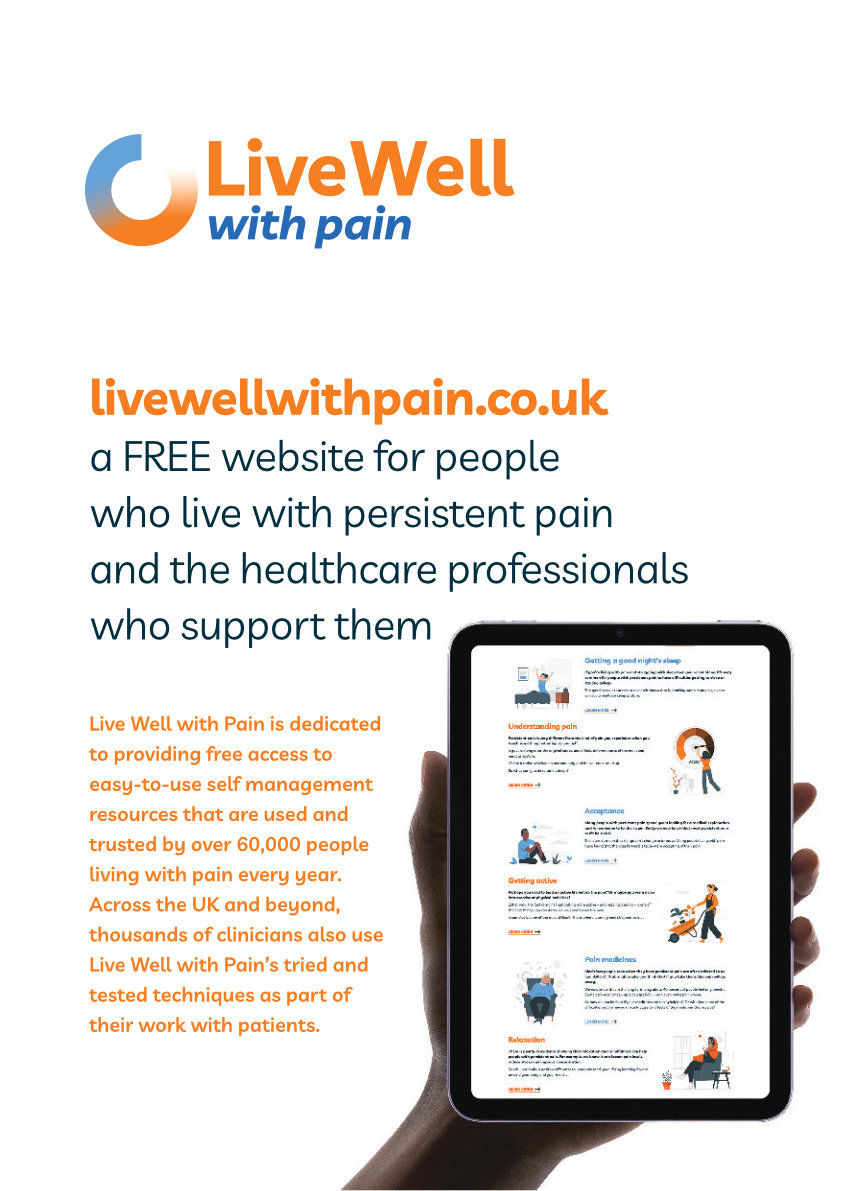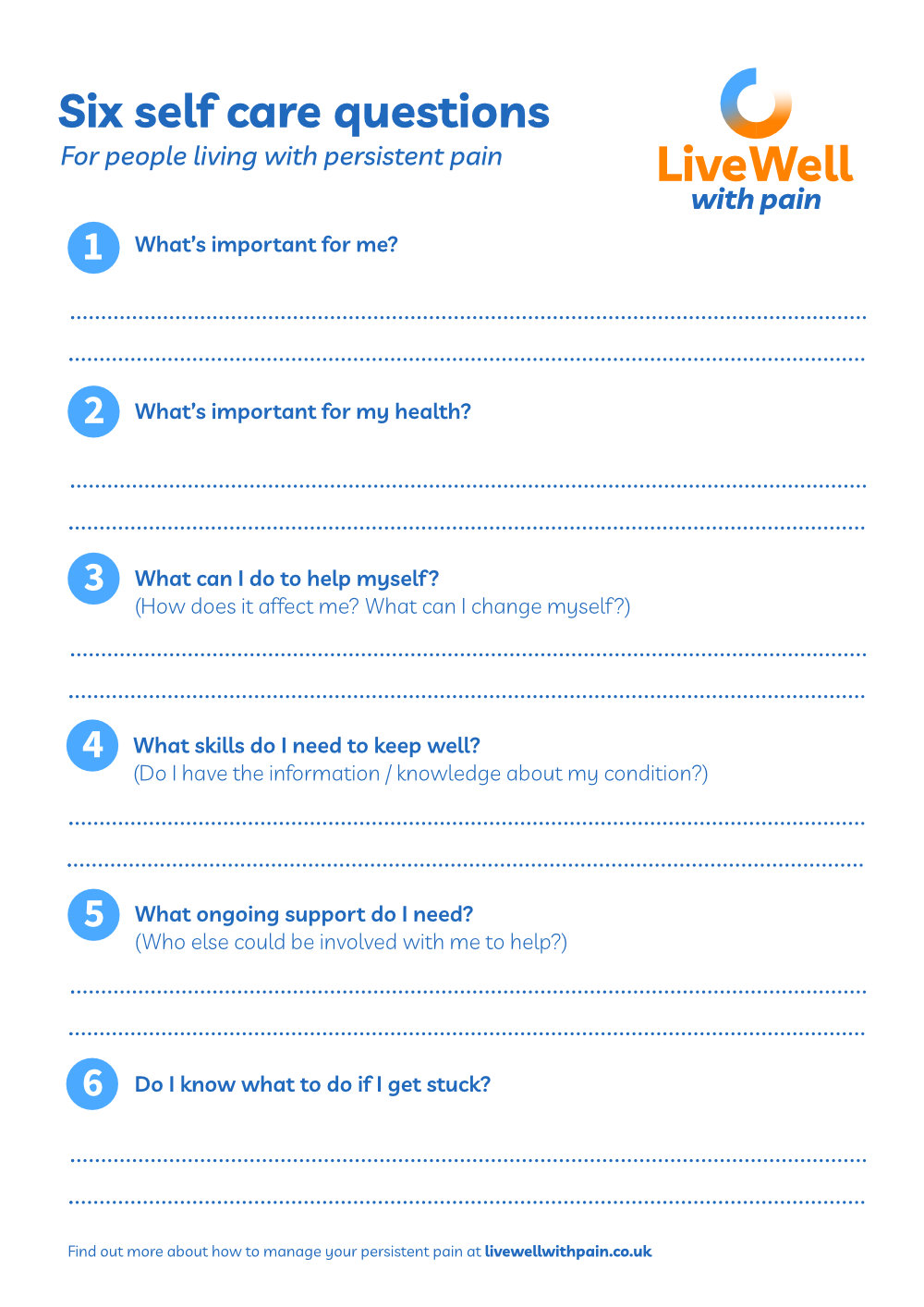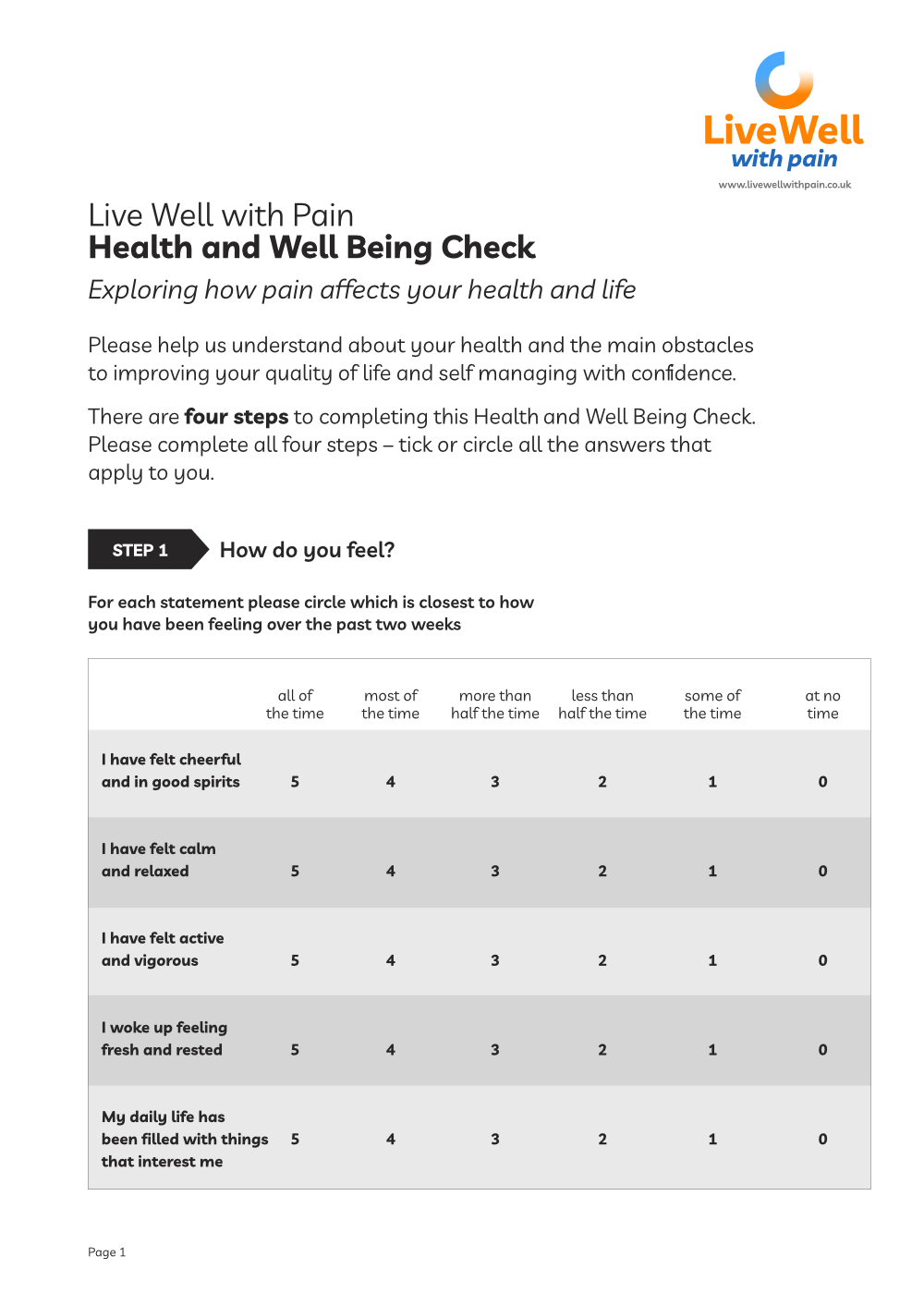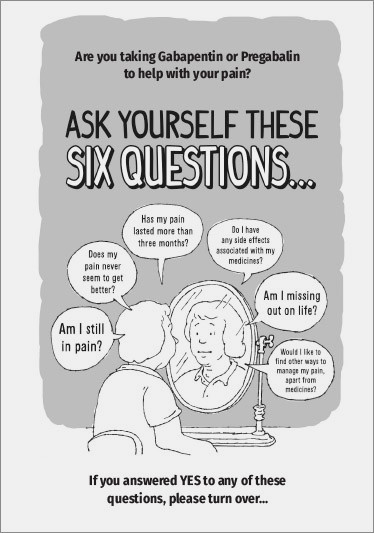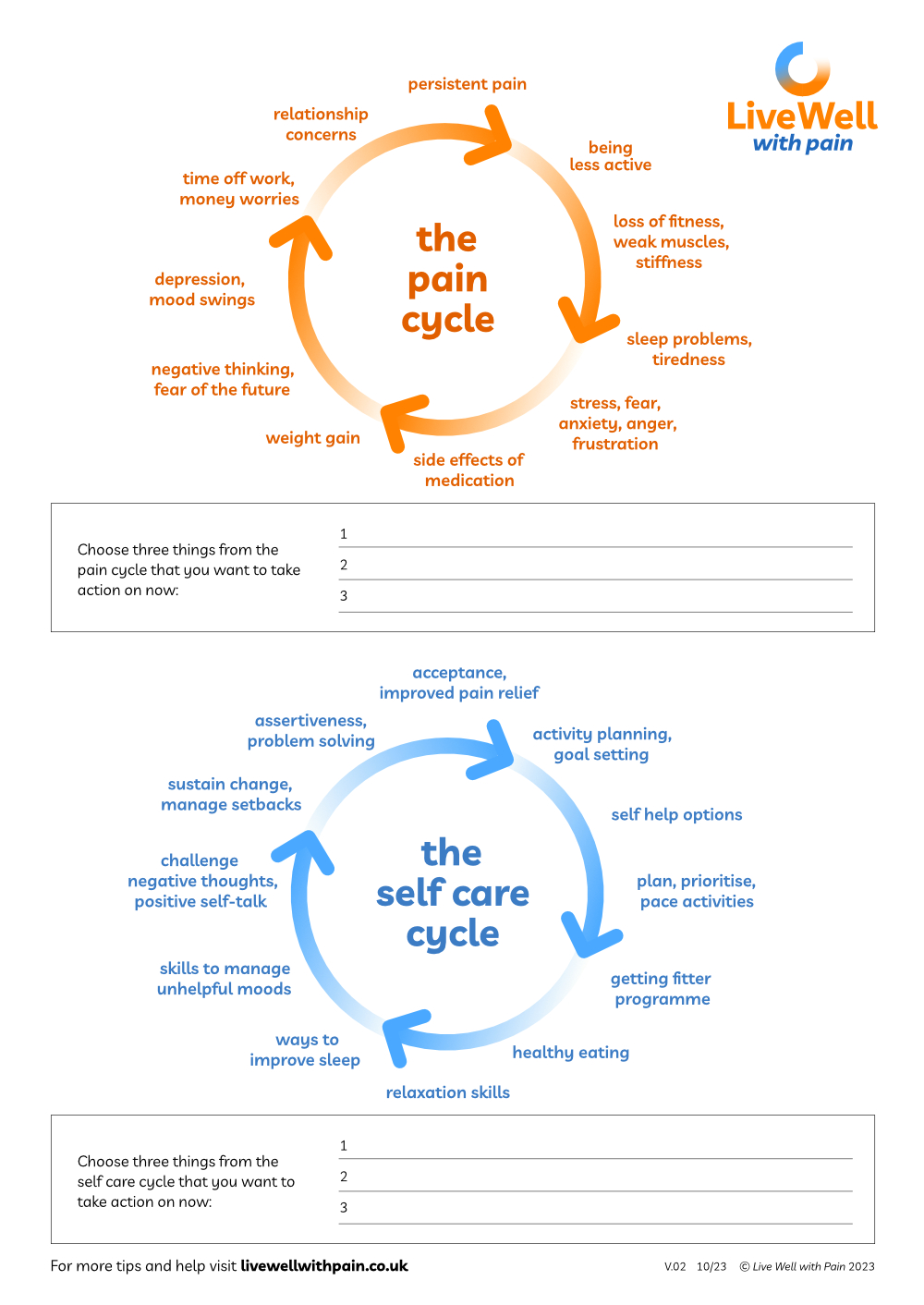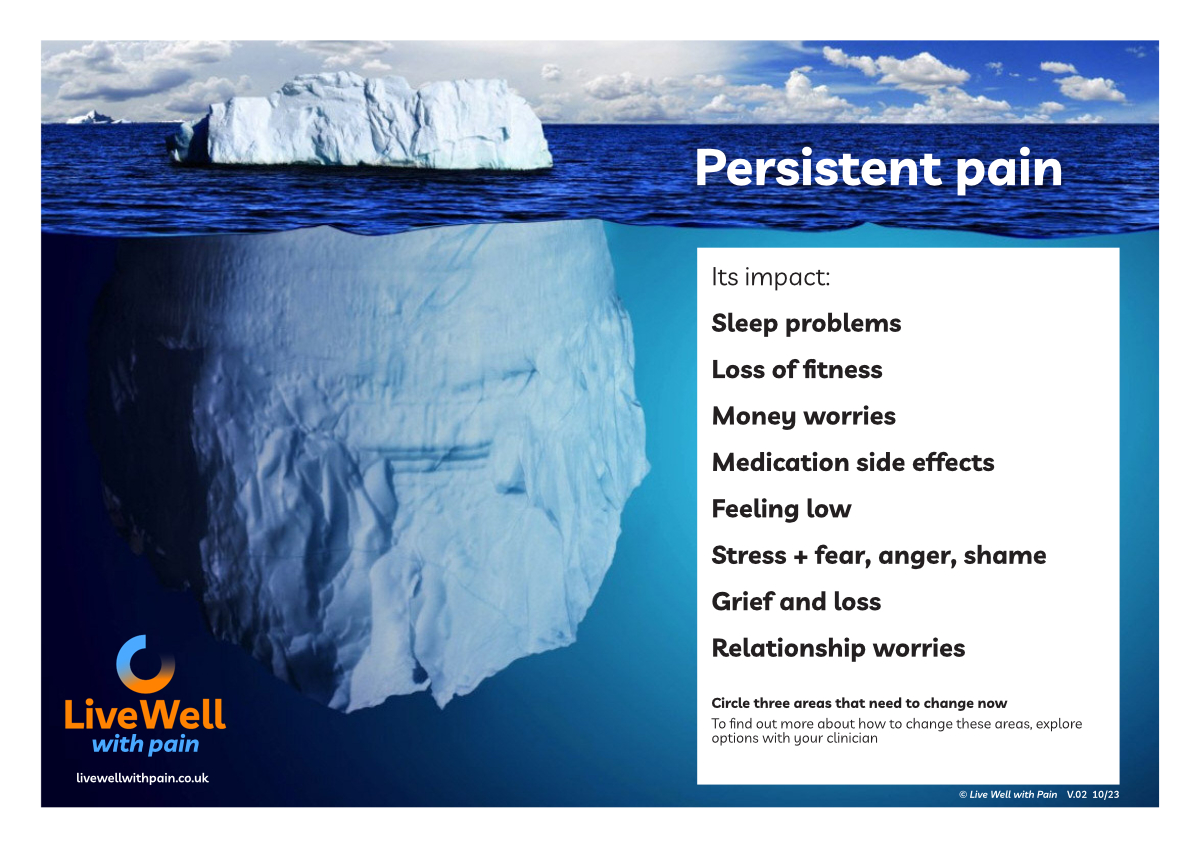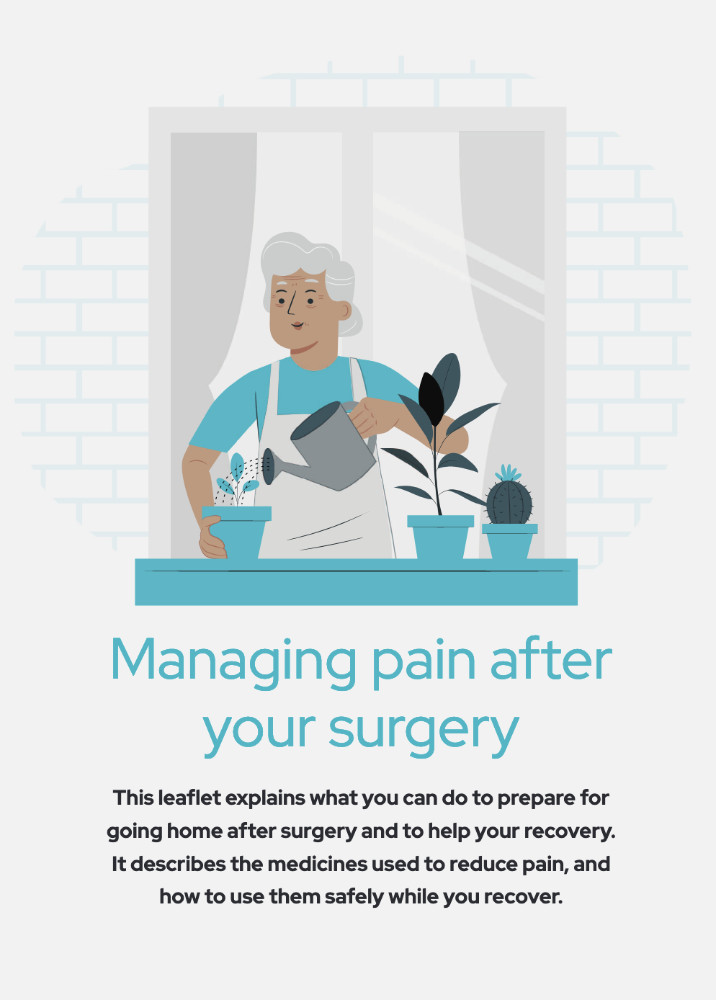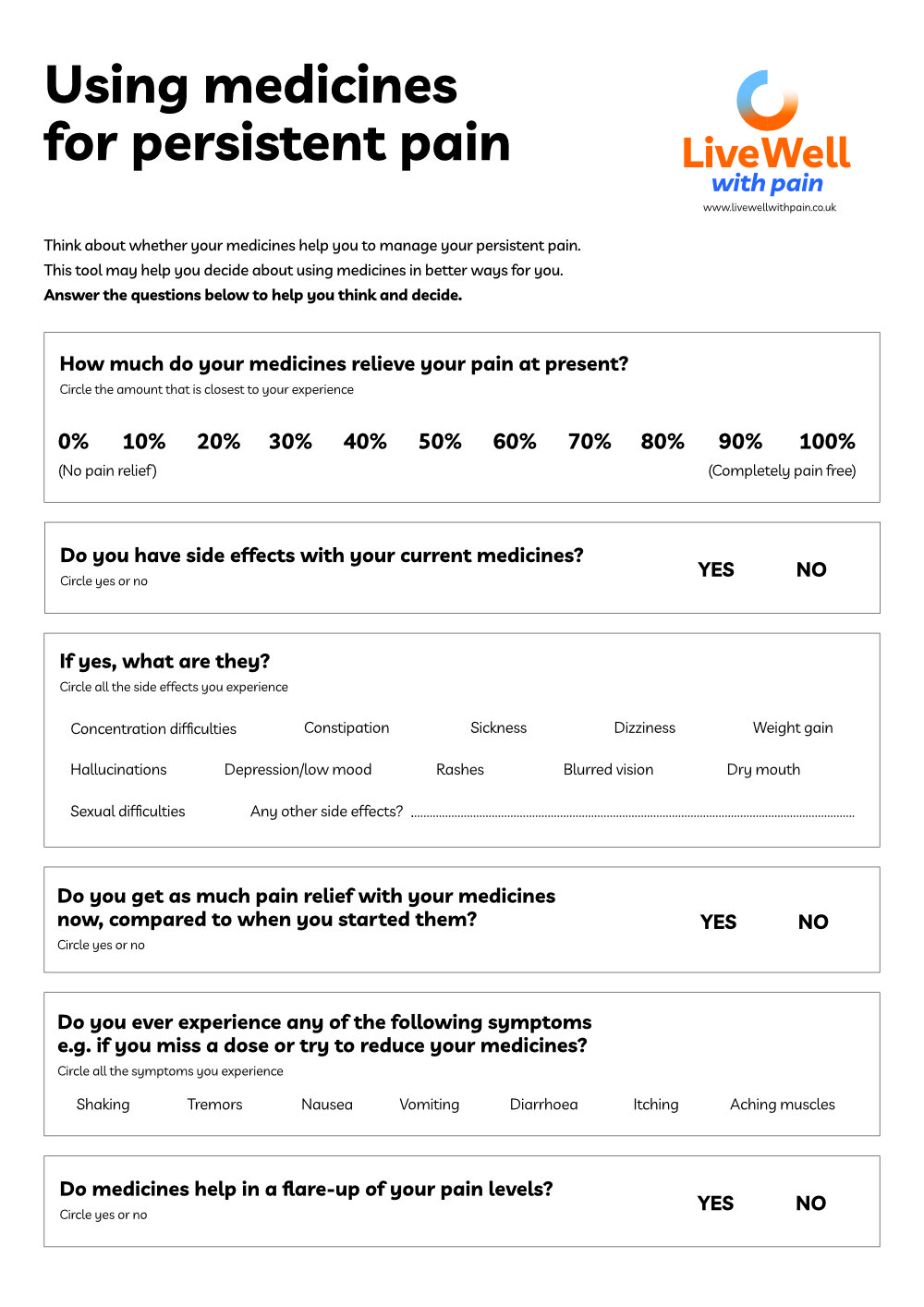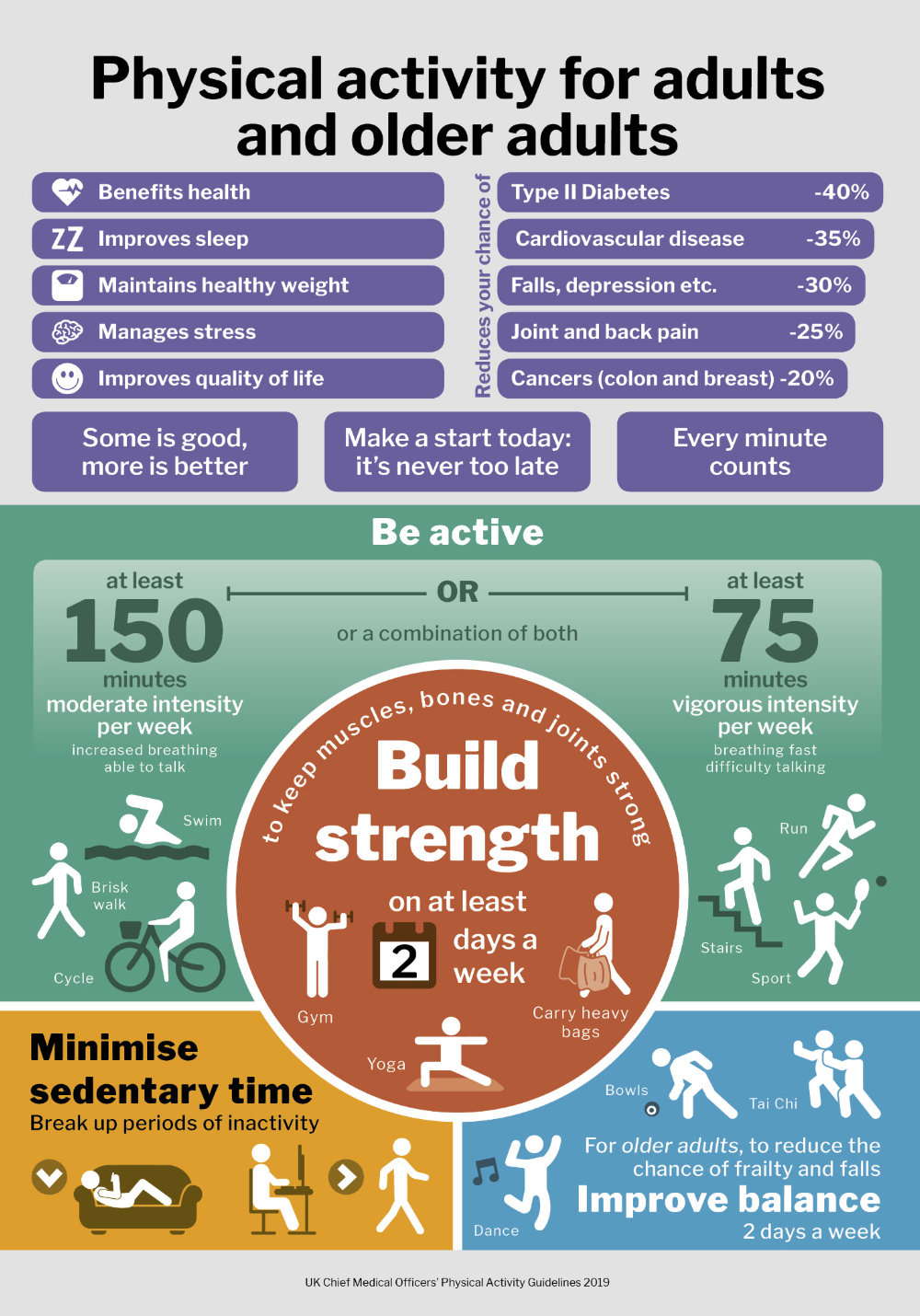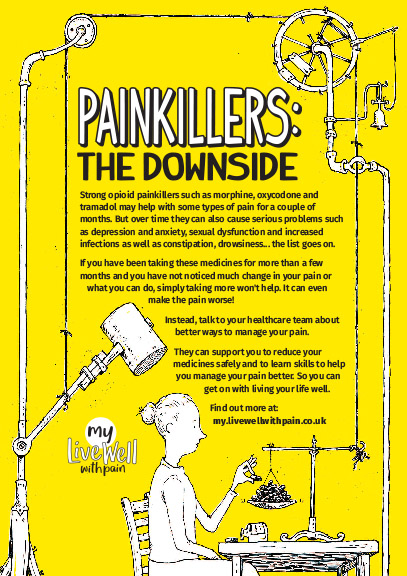Self management resources for the person with pain

Where do medicines fit in?
ALSO AVAILABLE AS A PRINTED BOOKLET Informative booklet that will support you in reviewing pain medicines with a person with pain. It describes:
- Why persistent pain happens
- How pain medicines can be helpful as part of your pain management plan
- Some common problems you may experience with these medicines
- When to consider reducing your pain medicines and how to do it
- Other ways of living well with pain
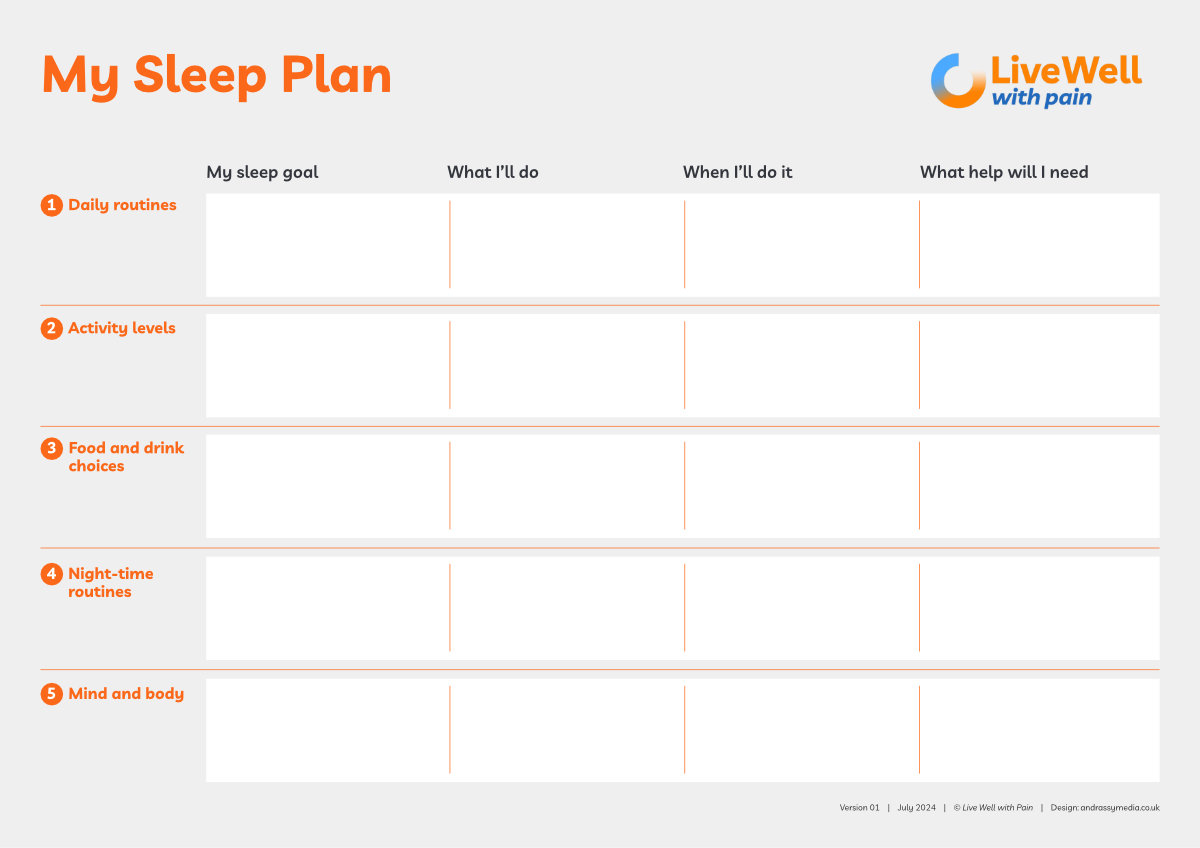
Sleep Planner
Download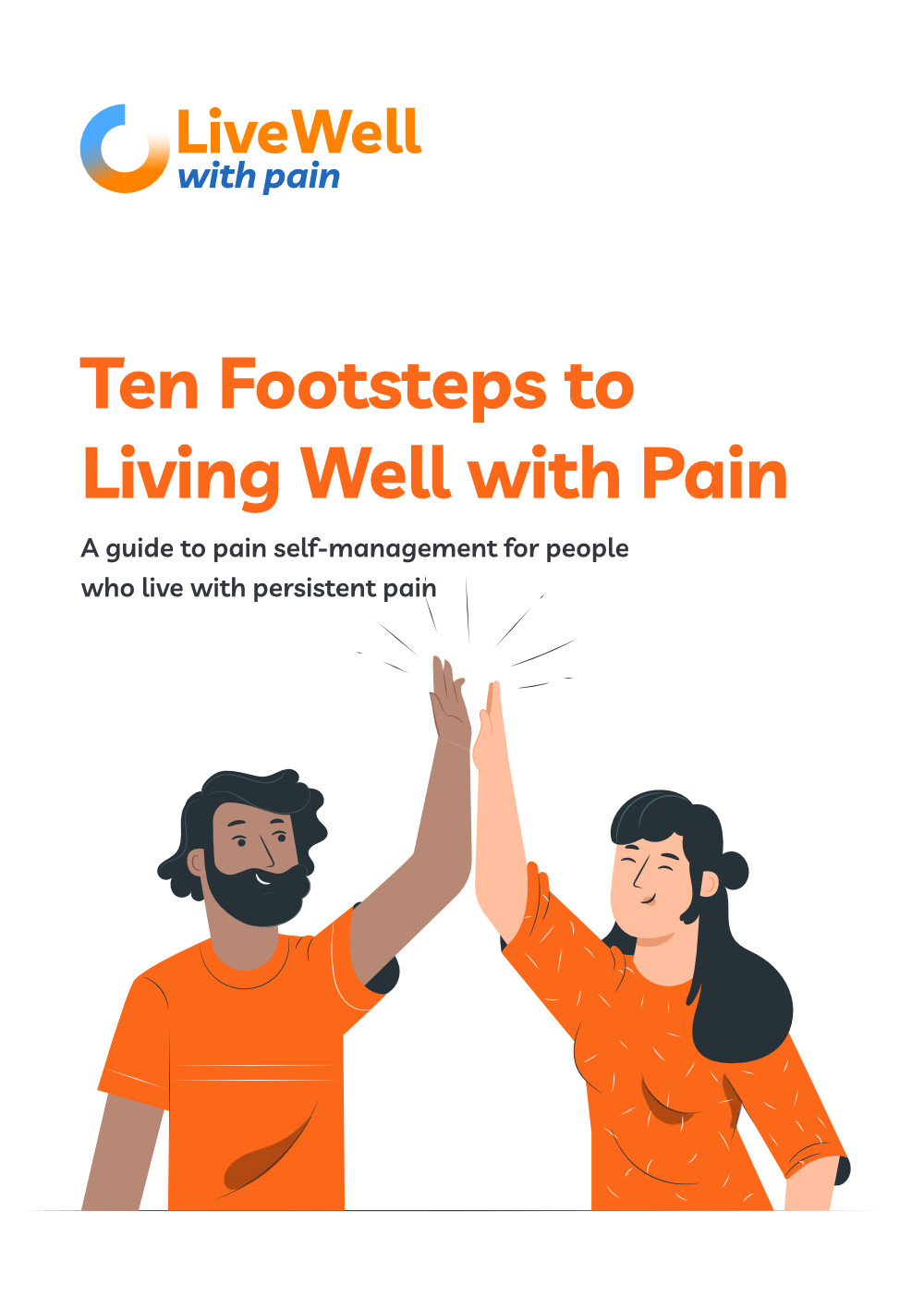
Ten Footsteps booklet
ALSO AVAILABLE AS A PRINTED BOOKLET If you find the Ten Footsteps on our website useful, then handy booklet is just the thing for you! It contains a summary of each of the footsteps on your self management journey, from acceptance right through to managing setbacks.
Download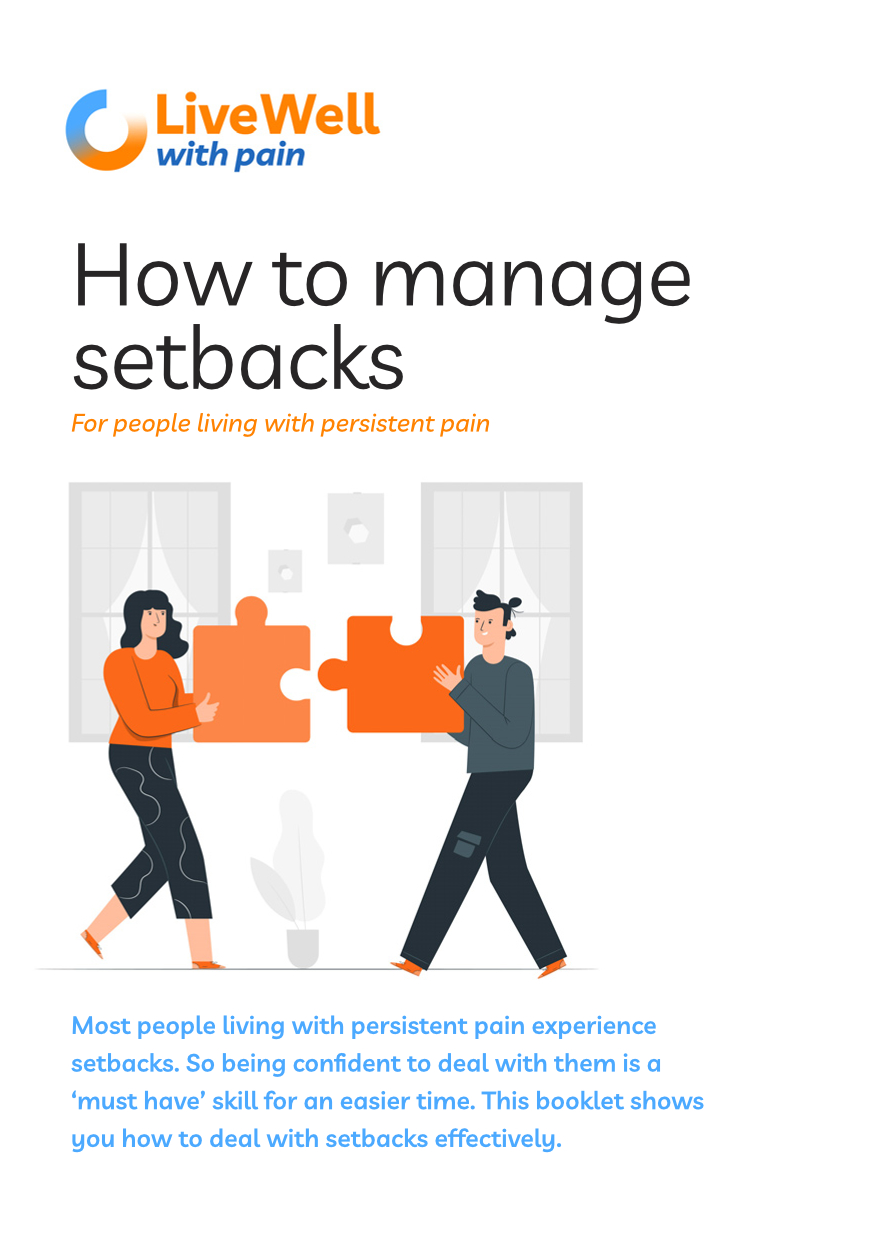
Managing setbacks
ALSO AVAILABLE AS A PRINTED BOOKLET Practical advice and tips for people with persistent pain to help them build a setback plan. Can be used during a setback or, even better, during better times so the person is prepared for when a setback happens.
Download the booklet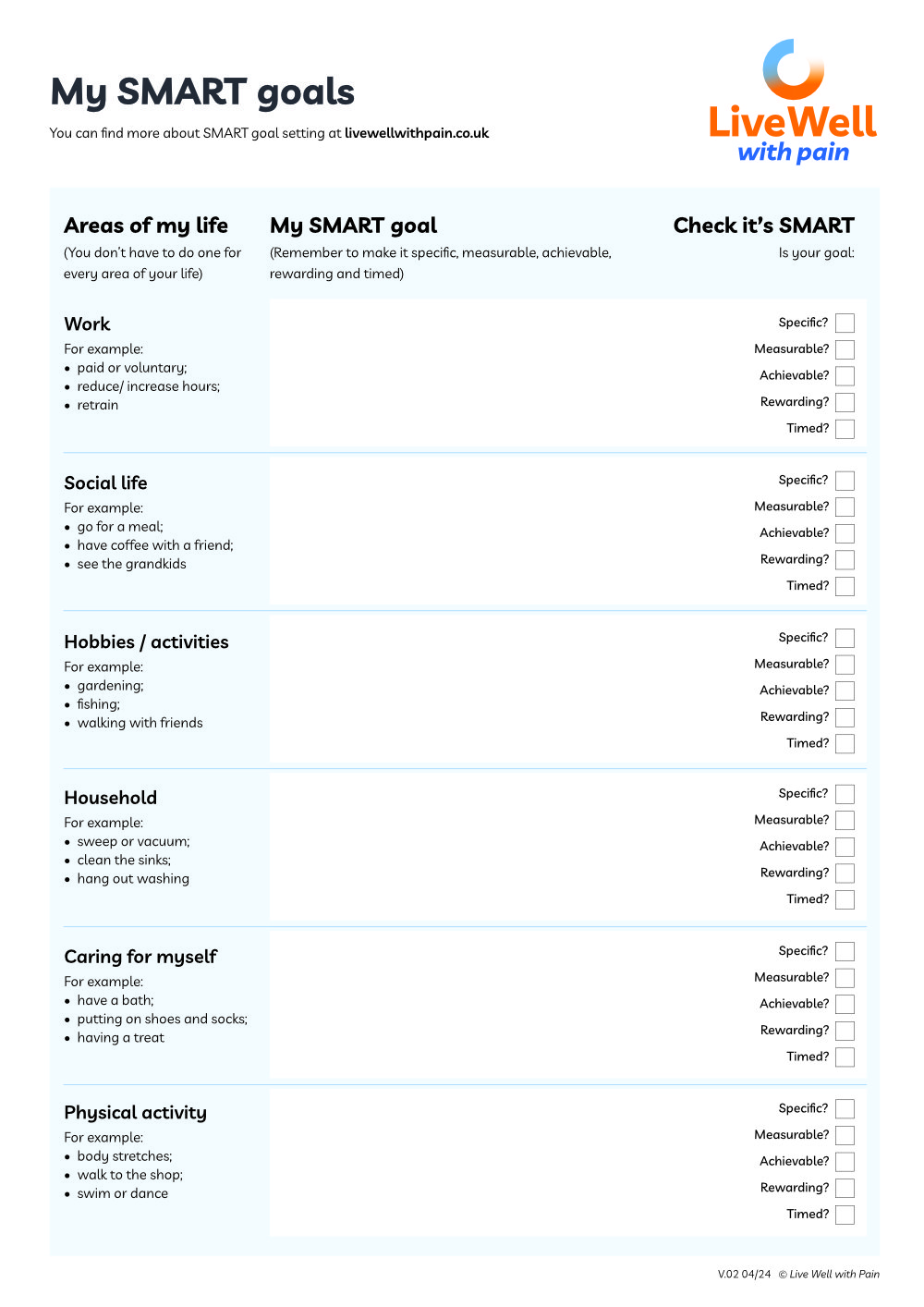
My SMART Goals
This A4 sheet encourages people to start thinking about goals in different areas of their life. It should be used in conjunction with the Goal setting booklet.
Download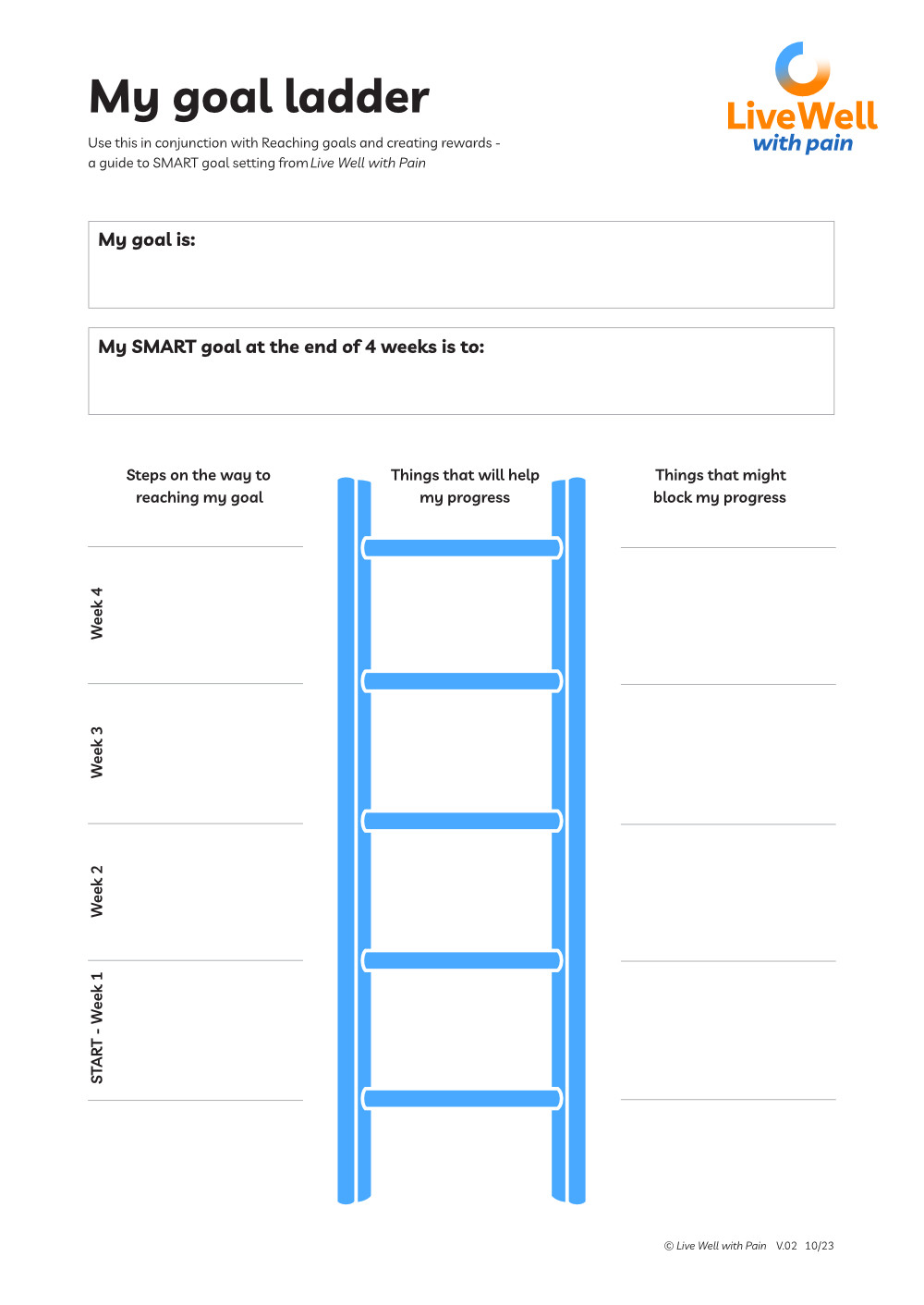
My Goal Ladder
Many people find it useful to think about their SMART goals like steps on a ladder. This A4 sheet will help a person to break down each goal into small, achievable steps. These can be used to build up, week by week, towards a bigger goal. It should be used in conjunction with the Goal setting booklet.
Download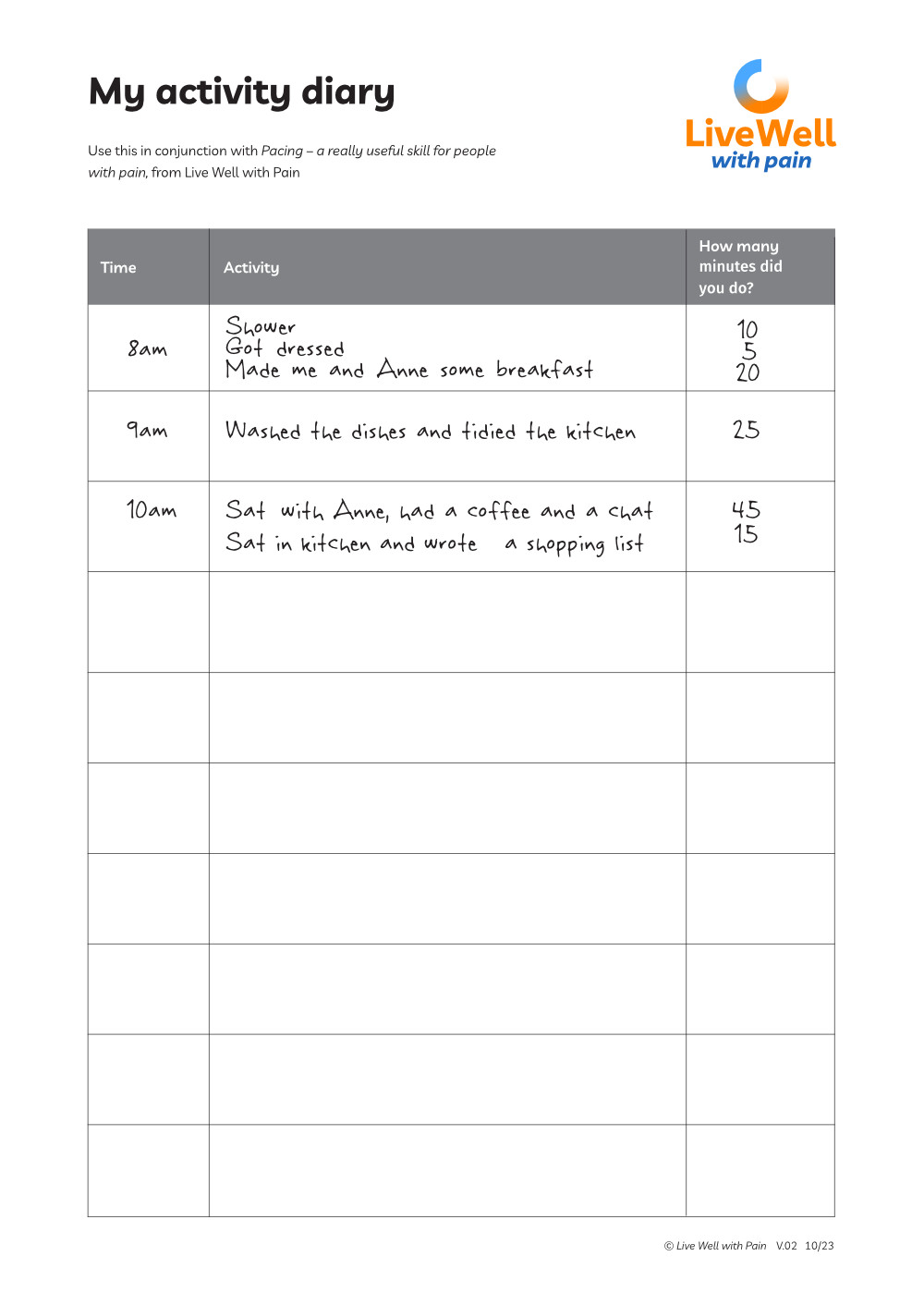
My Activity Diary
This diary or log completed by the person over at least 2-3 days helps them and others understand their current pacing style. Completing the diary enables a person to track their activities including sleep, rest, sitting or lying down periods, as well as all the activities they carry out through the 24 hours. It helps to record the minutes spent on each activity to get a fuller picture.
Download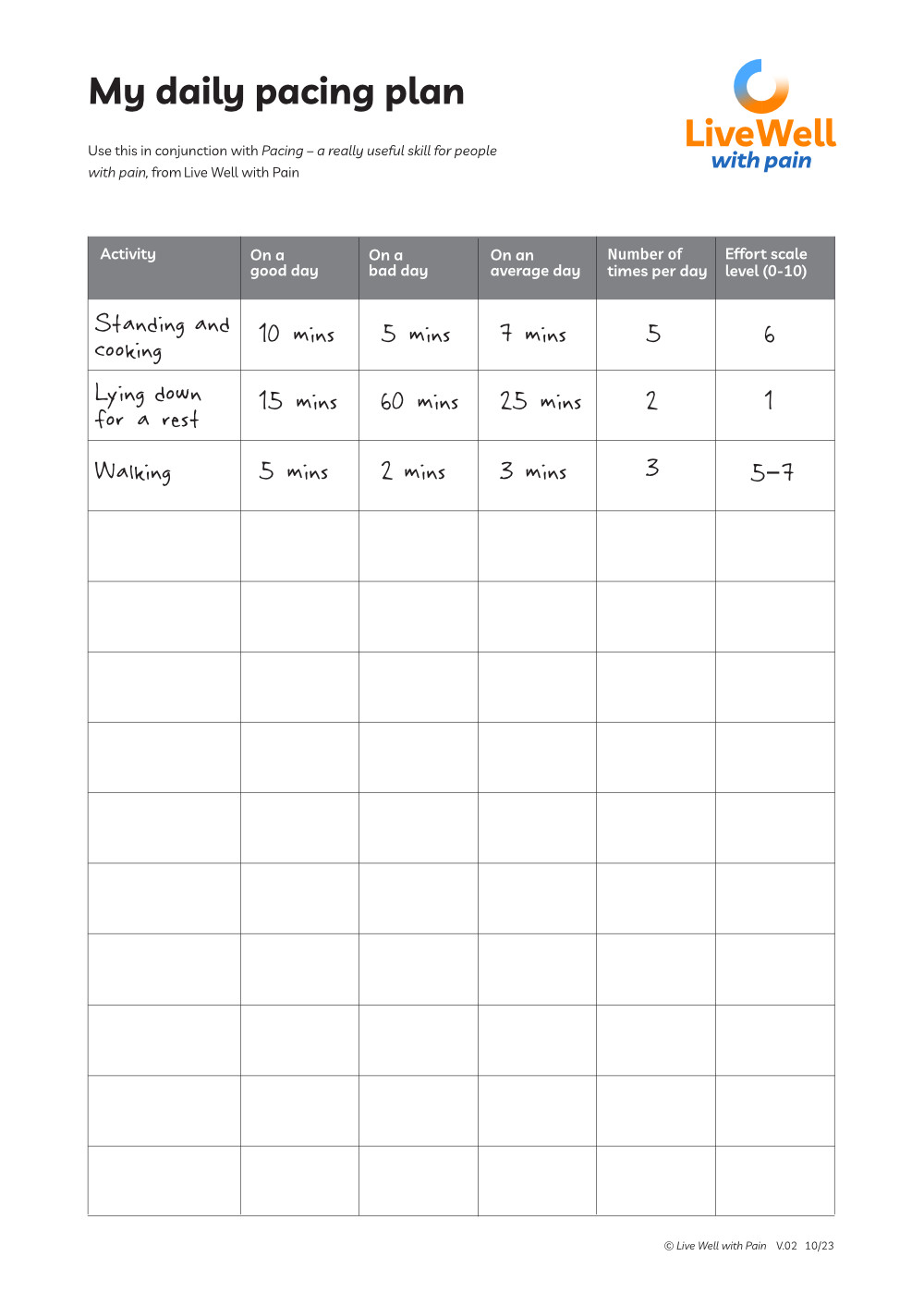
My Daily Pacing Plan
The person you are supporting can create a Daily Pacing Plan to help them balance and pace activities. The ABC questions can help them build their Daily Pacing Plan: A: What Activities can I pace today? B: How long before I take a Break? C: Check what is the effort level on an Effort Scale
DownloadTaking Opioids for Pain
A patient information leaflet from Opioids Aware. Developed by The Royal College of Anaesthetists Faculty of Pain Medicine, 2016
Download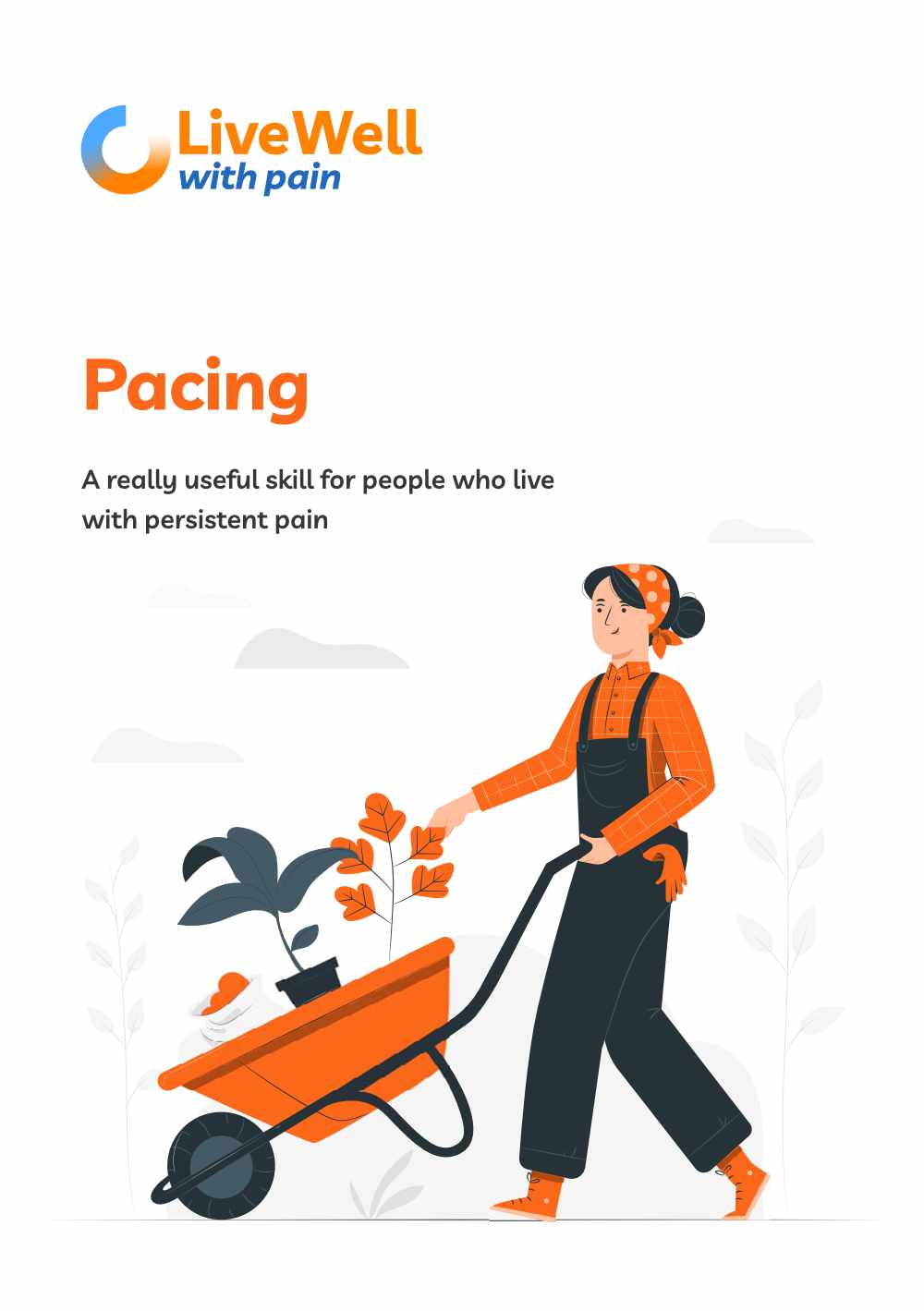
Pacing
ALSO AVAILABLE AS A PRINTED BOOKLET Pacing is a key everyday skill to learn and use for people living with persistent pain. This leaflet offers useful techniques for learning how to balance activities through the day and avoid the common 'boom and bust' cycle experienced by many with persistent pain.
Download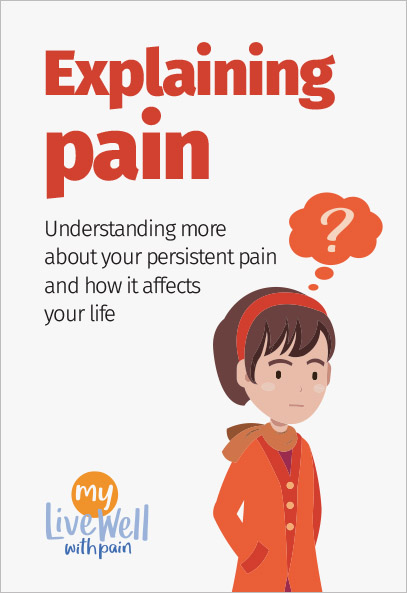
Explaining Pain
This booklet explains: what persistent pain is; what is going on inside us when we experience persistent pain; why people might develop persistent pain in the first place; how it makes us feel; and what we can do about it.
Download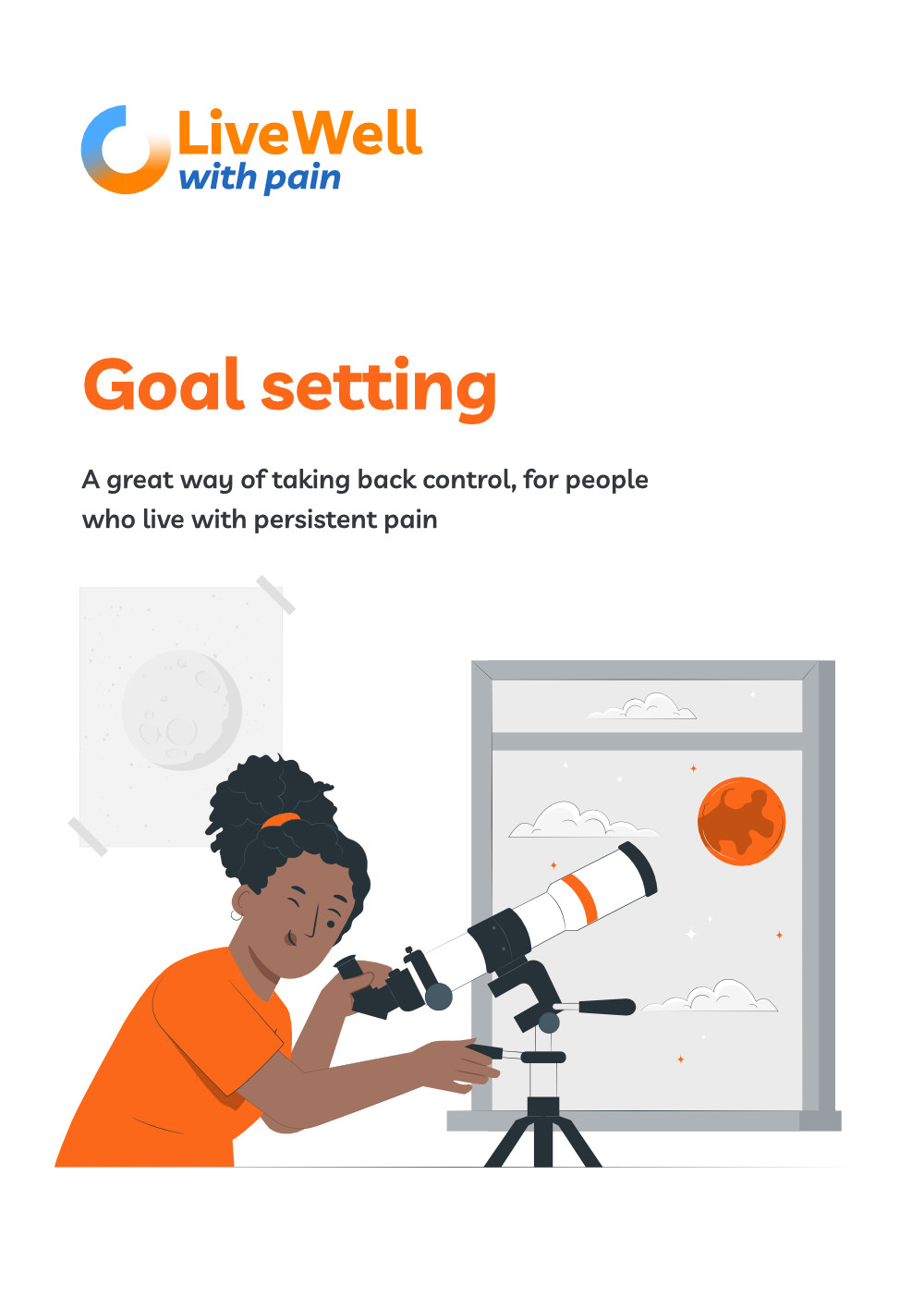
Goal setting
ALSO AVAILABLE AS A PRINTED BOOKLET Achieving goals, especially for people living with persistent pain, can be difficult and challenging. One way of increasing the ability to reach goals is to develop the skill of goal setting. This leaflet for patients explains how.
Download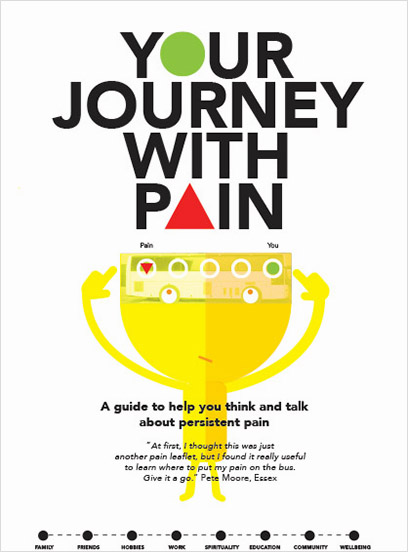
Your journey with pain
People living with pain can self-complete this booklet. It uses the metaphor of a bus journey and is a great way for people to start on their journey of acceptance and where they want to focus their lives despite the pain.
Download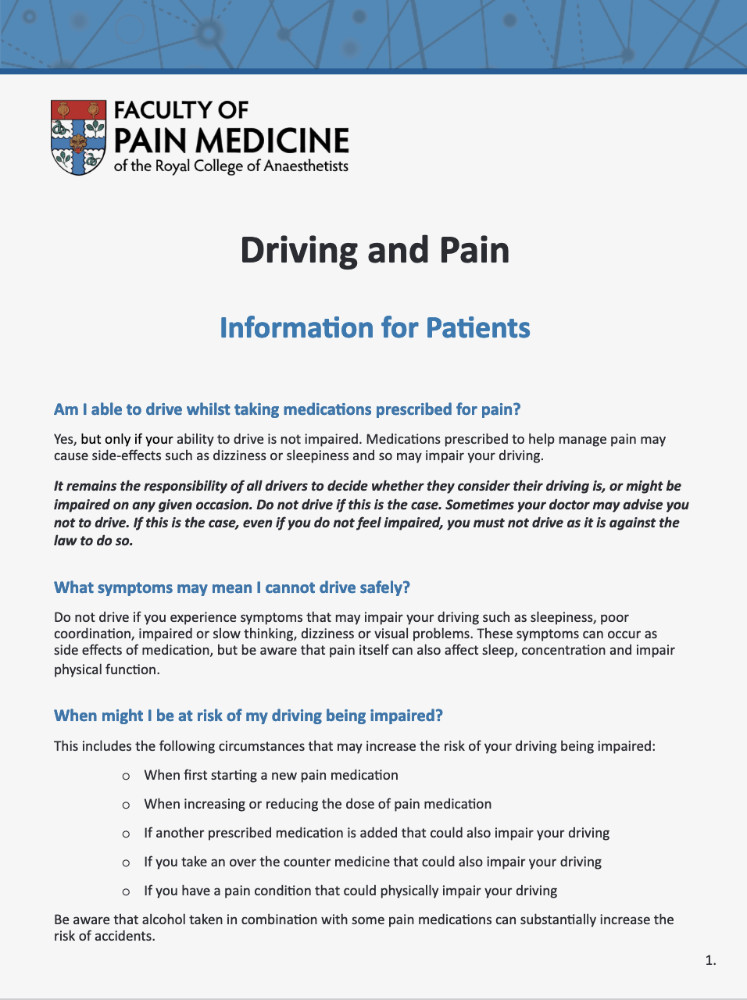
Driving and Pain
Information for patients on driving whilst taking medications prescribed for pain.
Download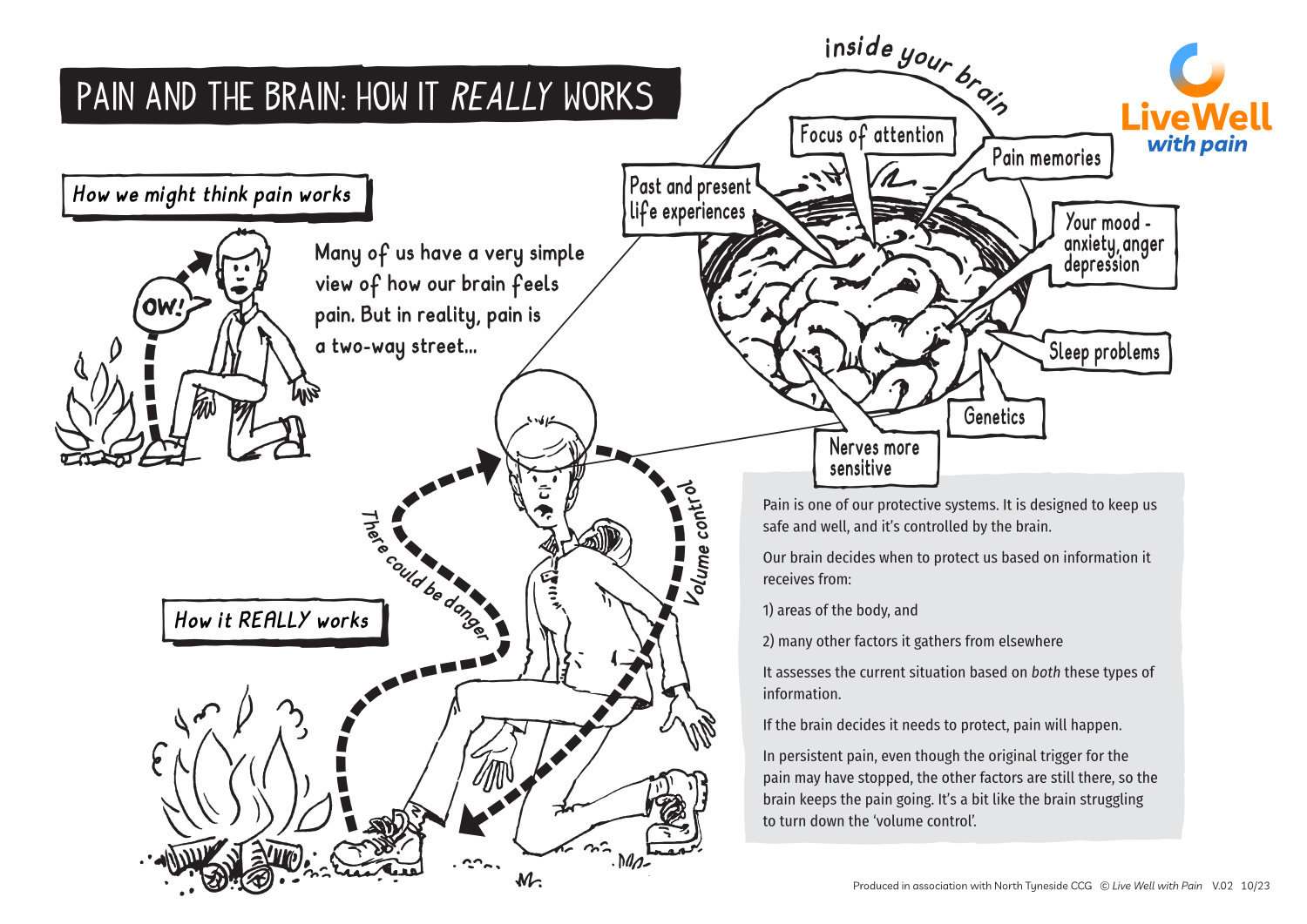
Pain and the Brain
Many people have a very simple, even simplistic, way of thinking about how and why pain occurs. While this works fine in many day-to-day situations, it falls down when trying to understand persistent pain. This A4 sheet has been designed to use in consultations with your patient, to help them think about the many factors that are contributing to their experience of persistent pain.
Download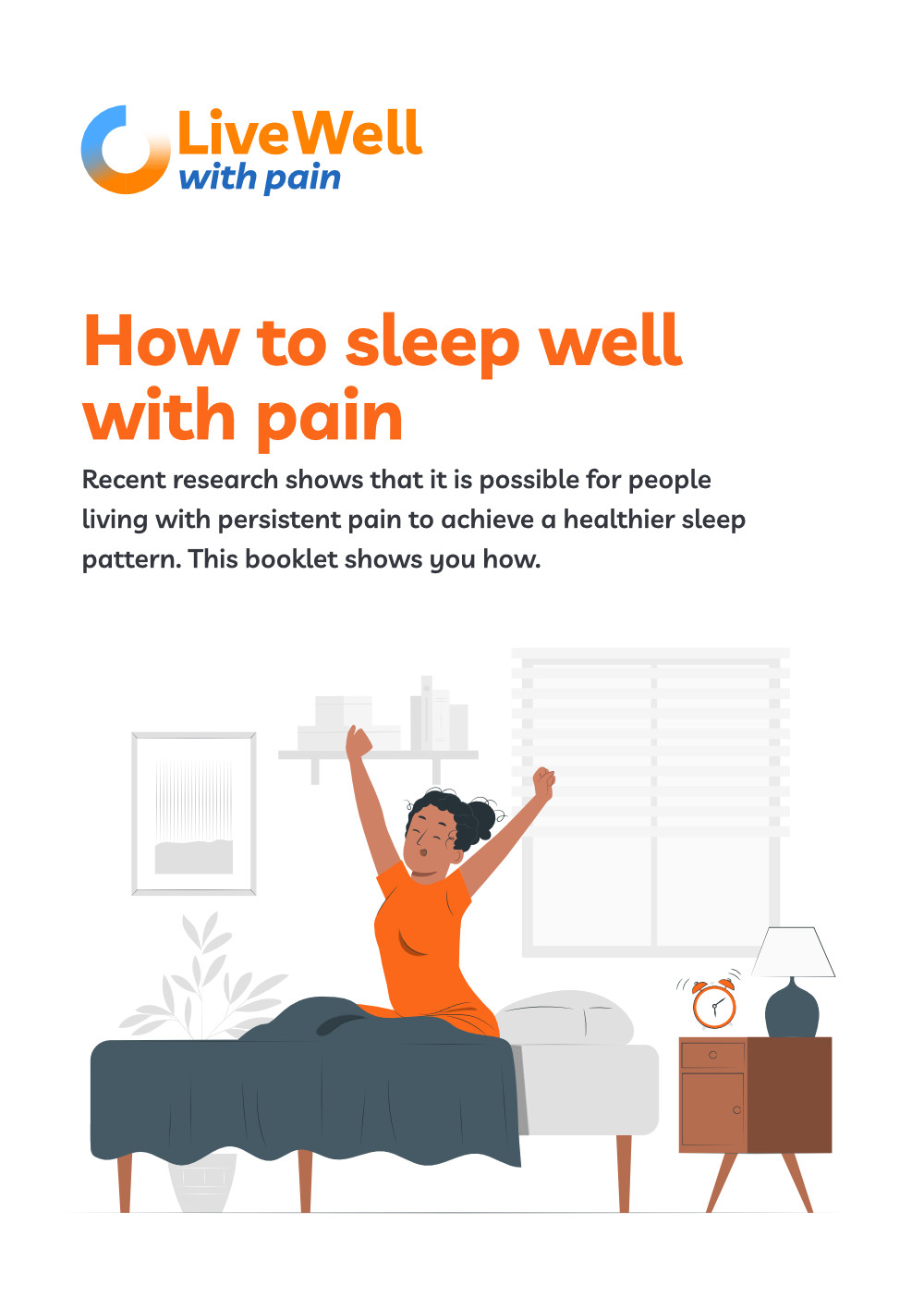
How to Sleep Well with Pain
ALSO AVAILABLE AS A PRINTED BOOKLET This leaflet draws on recent sleep research and provides simple-to-follow guidance for patients to develop the skills they need to start getting a good night’s sleep.
Download